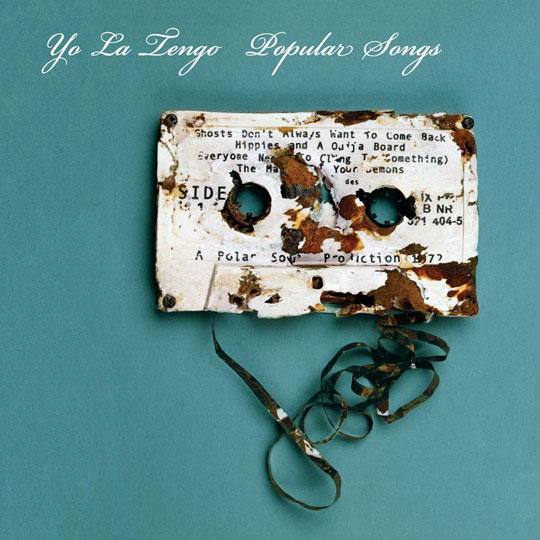Yo La Tengo occupy an interesting place in the world of indie rock, and I state this fully aware of the precarious implications of the term “the world of indie rock.” By all accounts, it is too vague to mean anything at all, though perhaps that’s why it’s a fitting term to frame Yo La Tengo. If asked for a description of the band’s sound, you’d be hard-pressed to find a very succinct or satisfactory answer. Throughout their remarkably consistent career, they’ve established themselves as a band that could do or sound like anything.
But try and imagine a world where Yo La Tengo never existed… is anything a whole lot different from reality, besides the absence of a handful of awesome Yo La Tengo albums sitting on your shelf? Maybe not. To say Yo La Tengo aren’t a great band is to do them a disservice, but to say they aren’t an important one is more close to the truth than many hardcore fans would like to admit, myself included. The truth is probably that, more than anything else, the band have been especially good at culling from their influences, rather than blazing their own trail.
This may come across as rather dismissive, which is not what I’m going for. Popular Songs, the band’s umpteenth album, is good at illustrating the point I’m trying to make. All the hallmarks of another great Yo La Tengo record are present: stylistically all over the map, fuzzy guitars, quiet ballads, great songwriting, and—this perhaps the band’s greatest quality—without a whiff of pretension. It’s an easy album to take for granted. It’s certainly not going to change the world, but Yo La Tengo have never tried that anyway. Rather, this album, like all Yo La Tengo’s output, sounds more like a labor of love; love for music, and love for each other.
Now, to focus more on the album itself, Popular Songs is very much to 2006’s I Am Not Afraid Of You And I Will Beat Your Ass as 2000’s And Then Nothing Turned Itself Inside Out was to 1997’s I Can Hear The Heart Beating As One in that it’s something of a retreat from the previous album’s bombast. As Beat Your Ass and Heart were huge, sprawling and occasionally exhausting, Popular Songs and Inside Out are more laid-back and go down a bit easier (this despite both being about 77 minutes long). The albums aren’t mirror images, as Yo La Tengo have never been ones to repeat themselves, but it serves as a decent reference point. However, while Inside Out managed to hone a pretty singular sound throughout it’s duration, Popular Songs holds onto the disparate eclecticism that permeated Beat Your Ass.
But while Popular Songs‘ immediate predecessor thrived in being so all-over-the-map, it becomes one of the reasons that this record is one of the group’s most problematic LPs in years. Rather than bashing about with reckless abandon on each track, Popular Songs will constantly begin to gel over the course of a few tracks, and then swerve off on some other tangent, and over again. It makes for a somewhat disorienting listen, and becomes more frustrating than endearing.
This also wouldn’t matter quite so much were the material as consistently strong as their best albums—and sadly, it isn’t. Somewhere around “If It’s True” we’re met with some of the more generic and inconsequential Yo La Tengo tunes since sometime before Painful, and during that stretch it might be more rewarding to go listen to Fakebook for twenty minutes. The record record pulls itself up again, though, with two 10 minute epic pieces that follow, “More Stars Than There Are In Heaven” and “The Fireside,” both of which are quite simply stunning. But not content to go a whole record without some blistering guitar theatrics, Popular Songs closes with “And The Glitter Is Gone,” a 15 minute skronk groove in the vein of “Pass The Hatchet, I Think I’m Goodkind.” The final track is fun to hear, but ends up being wholly unnecessary in context with the rest of the record.
But these problems aside, Popular Songs is just as much a joy to listen to as any of the band’s material—it’s merely a good record rather than a great one. And when a discography is as packed with as many of the latter as Yo La Tengo’s, it’s pretty easy to give them a pass on delivering the former.

